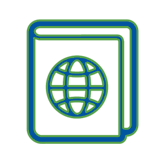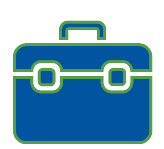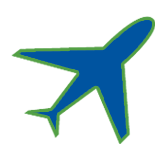Traveling with TSA Tours? We’re happy to have you onboard!
As you prepare to embark on your travel adventure, we know that a million questions come up. Can I use my cell phone abroad? What happens if I get sick? Do I need a visa? Worry not! We’ve been organizing group travel since 1985 – we’ve been there, done that and we use our knowledge and experience to make your trip as effortless as possible.
While we can offer you the most organized, hassle-free tour possible, we can’t pack your suitcase, apply for your passport or guarantee you won’t get jet lag. We still consider it our duty to help you prepare for your travel experience so it’s as carefree and amazing as it should be. Explore the information and resources below, and if you have more questions, check out our FAQs for Parents and Students. If that still doesn’t answer your query, contact us and we’ll be happy to chat.
 Passports & Visas
Passports & Visas
But first, there are a few technicalities to get out of the way. Any U.S. citizen who travels outside North America needs to have a passport. This is your international I.D. and you can’t leave home without it!
Non-U.S. citizens may need to obtain visas even if they already have a valid passport. A visa is special permission to travel to your destination country (not a credit card, although those are helpful too!).
Use the links below to find passport application information and office locations, or to find out if you need a visa.
US Passport Services
Bureau of Consular Affairs
Once you have your passport, please fill out the Passport and Emergency Contact Form.
Photocopy the first page of your passport (with your picture) and leave one copy with your family or friends and take another copy with you.
 Packing
Packing
Here are some helpful tips for packing just the essentials so traveling is a breeze:
Packing List for Traveling Abroad
How to Get Through the Line Faster
Prohibited Items
3-1-1 for Liquids and Gels
Packing Smart and Traveling Light – from Rick Steves
Tips for Every Trip – from Fommer’s
Airline Baggage Restrictions
 Flying
Flying
While you might spend the first few hours of your flight riding a wave of excitement, the novelty will eventually wear off. Take along an engrossing book, magazines, or bring your own headphones so you can take advantage of in-flight entertainment for free (airlines often charge for headphone rentals).
Wear comfortable clothes and drink plenty of water to prevent dehydration — airplane air is dry and cold. If you can’t manage to get some zzz’s on the way, try to stand up, walk around and stretch every few hours.
If you’re worried about jet lag due to crossing time zones, here are some helpful resources:
Jet Lag Calculator – from British Airways
Jet Lag, Your Flight, and the First Day of Your Trip – From Rick Steves
 Money
Money
You’ll need to contact your bank prior to travel so they don’t place a hold on your account for suspicious charges. Tell them where you’re traveling and when. Upon arrival, find an ATM and withdraw some cash – but not too much! ATMs are ubiquitous in most destinations, so unless you know you’ll be leaving civilization for a while, only withdraw what you need for a day or two. Fees will come into play, but shelling out a few bucks in fees is better than losing a few hundred dollars.
The exchange rate you’ll get at an ATM is usually better than a currency exchange (or bureau de change). For more details, tips and warnings, read on.
For trips to Latin America, you’ll find that many countries accept American dollars, but in some cases you can actually get a better deal in the local currency.
The stakes can be high when it comes to losing important identification and cash abroad. To hang on to your passport, credit and debit cards and cash, you may want to purchase a money belt. You’ll be on the move for much or your tour, and it’s easy to lose track of your belongings if you’re not careful.
 Weather
Weather
Parts of Europe can be very hot and humid in the summer, so be prepared with lightweight options. But, if you intend to visit any churches, you should avoid shorts, short skirts, tank tops or sleeveless shirts – be respectful of the dress code for religious institutions.
 Health
Health
If you experience a non-emergency health issue in Europe, head to the local pharmacy. Pharmacists function more like doctors in Europe and can even prescribe some medications. If necessary, they will refer you to a physician. Most visits to a clinic are free in Europe, even for travelers.
If you become ill or injured during your trip, first notify your tour leader. Your tour leader will have several emergency contact numbers on-hand, including TSA Tours’ 24-hour emergency lines. We will have access to all travelers’ contact information and will notify family members in case of an emergency. Your local guide, city representative, driver and hotel staff will be aware of local medical facilities and proper procedures.
 Staying in Touch
Staying in Touch
Beware of hotel phones – the charges can be very expensive for outgoing calls. Incoming calls are free, so if your friends and family have a reasonable rate plan for international calls, set up a time for them to call you in your hotel.
Internet access is generally even better in Europe than in the States. Cybercafés are easily found, and some hotels offer free computers to guests. Be aware that security on public terminals is often less than ideal, so take precautions when accessing banking or other private information online.
Skype and other VoIP providers such as Google Talk can save you lots of money and even make it possible to see loved ones’ faces via video calling. Set up your international account before you depart if you plan to use these services.
 Foreign Languages
Foreign Languages
Your guides will always speak English, but they and other locals are usually more than happy to decode your attempts at speaking their language. Often Americans don’t bother to try, and you may find that some locals resent having to speak English. Don’t take it personally – just make the effort to speak a few words in their language and you’ll be surprised how far it gets you!
